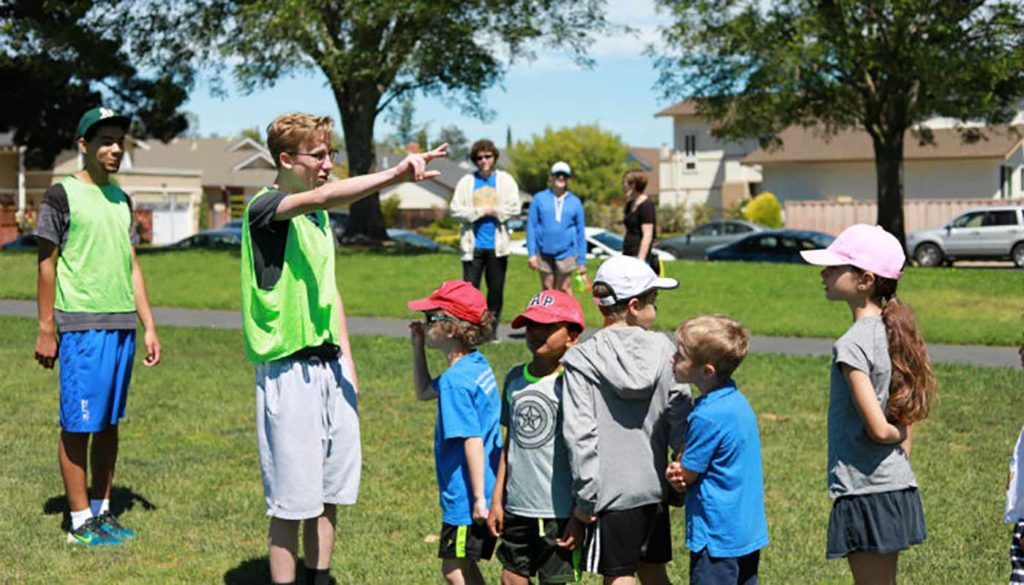The role of the head coach is to oversee the E-Soccer session for one age group. They create weekly agendas, lead the sessions, mentor assistant coaches, oversee progress reports, attend coaching trainings, and foster inclusive environments. If you are or want to be a head coach, the following is a learning guide for you:
Creating the Weekly Agenda:
-
Pick drills and games to play
- Choose who will lead each drill
- Choose drill time length
- Send agenda to other coaches
Click here for an example agenda for E-Soccer!
Leading the Session:
- Keep track of the duration of each drill and adjust it accordingly. Look out for the attention span and energy of the children. You may need to change the plan according to what they need.
- Order the drills so that transitions are smooth and down-time is minimized. This is important because for some children with special needs, a lack of structure can cause anxiety.
- Pair the children who need support with motor skills, focus, emotional control or understanding instructions with assistant coaches or peer coaches. Some students with special needs are independent and good at following instructions, but have a hard time building friendships. Pair them with a peer coach and/or look out for ways to encourage their friendship development.
- Safety is key. Make sure children are always in sight and that they safely reach their parents during break time.
Mentoring the Assistant Coaches:
- Teach them to lead the drills. Let them lead some drills. Give them feedback.
- Check in with them about the kids they’re working with.
- Ask them for feedback on how each session goes and on what the needs of the children are.
- Make sure assistant coaches bring to your attention any serious behavior issues or arguments that the children have, especially physical altercations. You will need to facilitate these situations and talk to the parents if need be. You can bring the assistant coach with you to talk to the parents.
Progress Reports:
- Keep track of the individual and group progress and adjust the level of difficulty of the drills to match the children’s progress.
- Work with other coaches to evaluate where each student starts in their physical skills, emotional control, and friendships. Track their progress each week. Update parents on their progress.
- Communicate with parents about the needs of their children and ask for advice about meeting those needs on the field.
Attending Coaching Trainings:
- Go to any coaches’ training that may be held by your local E-Sports program.
- Arrive at your E-Sports program an hour before the kids get there. This gives program directors a chance to do weekly coaching trainings with head coaches and allows head coaches to get feedback from one another and support each other.
- Implement what you learn at coaches’ training and teach the assistant coaches what you learn.
Creating an Inclusive Environment:
- Inclusion and knowing how to create an inclusive environment comes with experience at E-Sports. The children with special needs, their parents, and even other coaches who have special needs can teach you a lot about inclusion.
- Learn about how to meet different needs. Our E-Sports website and your program director have information on how to work with children with various needs and abilities.
- Learn inclusive philosophy. Our goal is to create an environment where all children are accepted, are able to participate in their own way, and are able to develop friendships. We want to include people of all abilities because we believe that we all need each other. You can read articles on the E-Sports website that talk about inclusion.
- Optional: Work together with the parents to plan a get together with your coaches and the children in your group outside of E-Sports. If it is a group with more than 5 children, plan two different hangouts. As you and the other coaches facilitate inclusion in the activities you do (arts and crafts, watching a movie, etc), great friendships can be built.





